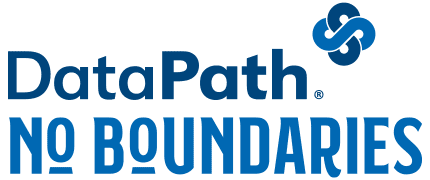
Families with young children can face enormous childcare costs. It’s not uncommon for daycare fees to add up to one of the family’s largest recurring expenses each month.
Fortunately, there are several ways to offset a portion of childcare expenses, including Dependent Care Flexible Spending Accounts ( DCFSA ), also known as Dependent Care Assistance Programs (DCAP), and the Dependent Care Tax Credit.
Dependent Care FSA
The DCFSA does for childcare expenses what the Healthcare FSA does for healthcare expenses. Contributions are made pre-tax through payroll deductions and are not subject to federal and state income taxes or Social Security and Medicare withholdings.
Eligible expenses include daycare, preschool, day camps, and before and after school programs for children who have not yet reached their 13th birthday. Also eligible are certain other expenses related to tax dependents who are not able to care for themselves while you are at work, such as disabled children or adults.
Prior to enactment of the American Rescue Plan Act (ARPA) in March 2021, DCFSA contribution limits were $5,000 annually for individuals or married couples filing jointly, and $2,500 annually for a married person filing separately.
ARPA increased the annual maximum for the 2021 tax year to $10,500 for individuals or married couples filing jointly, and $5,250 for a married person filing separately.
The decision to increase the annual limit for 2021 is subject to the employer, so you will need to verify with your HR department if they plan on participating in the increase.
Dependent Care Tax Credit
The Dependent Care Tax Credit allowed taxpayers to claim up to $3,000 of expenses for one dependent and up to $6,000 in expenses for two or more dependents. The maximum credit was 35% of eligible expenses, resulting in a credit of $1,050 and $2,100 against total tax liability.
The 35% maximum credit applied to taxpayers with an adjusted gross income (AGI) of $15,000 or less. Once AGI exceeded that level, the credit percentage decreased by 1% for every $2,000 AGI increase, until leveling out at 20% at an AGI of $43,000. At that level, $3,000 or $6,000 in eligible child care expenses resulted in tax credits of $600 or $1,200.
Finally, the Dependent Care Tax Credit was not refundable. In other words, the taxpayer did not get a refund for any portion of the credit earned that exceeded the tax liability they had prior to applying the credit.
ARPA however has dramatically increased the Dependent Care Tax Credit for all taxpayers for this year. The credit is now also refundable for 2021, so taxpayers can receive a refund for any credit that exceeds their tax liability.
For 2021, the maximum credit has increased to 50% of eligible expenses, and the maximum claim amount has increased to $8,000 for one dependent and $16,000 for two or more. As a result, rather than the previous maximum credits of $1,050 and $2,100, taxpayers can receive up to $4,000 and $8,000 for the 2021 tax year. ARPA also increased the AGI limits for 2021. The full 50% credit applies to AGIs of up to $125,000. Once AGI exceeds that level, the credit decreases by 1% for every $2,000 AGI increase, until hitting 0% at an AGI of $440,000.
So … Which is Better?
It is actually not an either/or decision. You can take advantage of both the DCFSA and Dependent Care Tax Credit. But, you cannot double-dip. The same eligible expenses that are reimbursed through a DCFSA cannot also be counted as eligible expenses to claim the Dependent Care Tax Credit.
Claiming both options, even if you have not before, may be especially beneficial in 2021 due to the changes made by ARPA to limits on contributions, claims, and AGI and the refundability of the tax credit. Please consult a qualified tax or financial advisor for your particular situation.
For More Information
You may also want to consult the following resources:
IRS Publication 503, Child and Dependent Care Expenses
“Child and Dependent Care Credit FAQs” on the IRS.gov website
For 40 years, DataPath has been a pivotal force in the employee benefits, financial services, and insurance industries. The company’s flagship DataPath Summit platform offers an integrated solution for managing CDH, HSA, Well-Being, COBRA, and Billing. Through its partnership with Accelergent Growth Solutions, DataPath also offers expert BPO services, automation, outsourced customer service, and award-winning marketing services.

